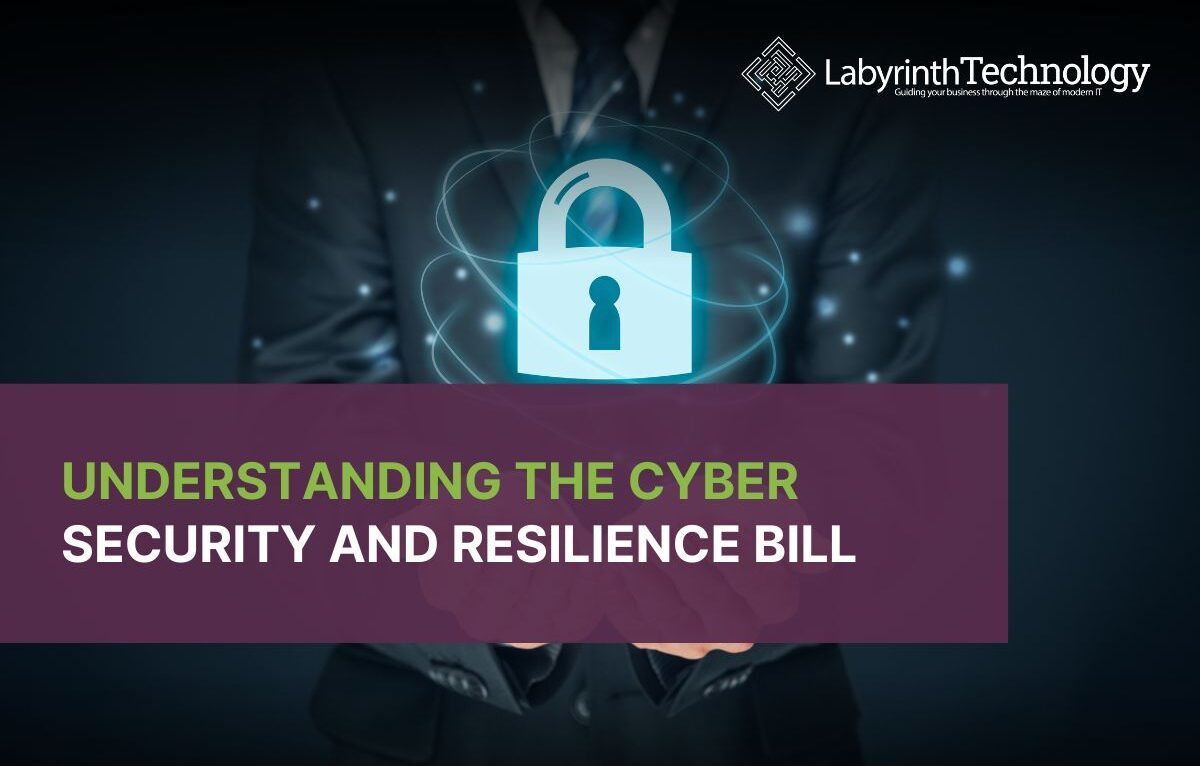
The cyber security and resilience bill strengthens how the UK protects essential services, digital infrastructure, and critical national infrastructure. It also expands who must follow stronger cyber security and resilience duties. If you rely on managed service providers, cloud computing services, or any essential digital services, this bill will affect how you handle cyber threats, incident reporting, and supply chain risk.
The UK government is tightening how organisations protect their information systems, digital services, and supporting infrastructure. Cyber attacks are becoming more sophisticated, more frequent, and more disruptive. You see it in the news every week, whether it is a ransomware attack affecting London hospitals or a breach in an online marketplace exposing customer data.
The cyber security and resilience bill builds on the UK NIS Regulations and aims to raise wider UK resilience by placing clearer security duties on businesses that support essential public services and the digital economy. The idea is simple. If your organisation plays a role in the day to day functioning of the country, you must prove you can withstand information systems security threats.
For many SMEs, this can feel far removed from daily operations. But managed service providers, cloud computing service providers, online search engines, online marketplaces, and other relevant digital service providers are increasingly targeted by hostile cyber actors. These sectors pose severe risks if compromised, and the bill recognises that reality.

The cyber security and resilience bill is a legislative proposal designed to strengthen existing policies that protect the UK’s critical infrastructure and essential services. It expands who is covered under security and resilience duties and updates the framework for how regulated entities must report incidents, manage cyber risk, and secure their IT systems.
The bill builds on the existing NIS Regulations, but it widens the scope to include a broad range of essential digital services such as cloud computing services, managed services, data centres, and other critical suppliers that hold or process vital information. The goal is to improve national security, protect essential service delivery, and maintain the stability of the UK’s digital infrastructure.
The bill also gives competent authorities more power to proactively investigate potential vulnerabilities, impose obligations, and recover potential costs for active administration if an organisation fails to meet required standards. It includes plans for two post implementation reviews that will check whether the changes have increased the security and resilience of UK citizens and essential service providers.
The legislation focuses on any organisation that delivers or supports essential public services, essential digital services, or critical infrastructure. This includes managed service providers, cloud computing service providers, online search engines, online marketplaces, data centres, and network and information systems that support essential service delivery.
Many SMEs may not see themselves as high risk at first glance. But if you deliver managed services, store critical data, provide digital infrastructure for clients, or act as a link in a wider supply chain, you may fall under the updated definitions for regulated entities.
The bill recognises that modern operations rely on interconnected systems. Just over half of recent significant incidents in the UK involved supply chain compromise. That alone has pushed the UK government to strengthen the way essential digital services must manage cyber threats.

You might think the focus is on critical national infrastructure. But SMEs play a major role in delivering essential services and supporting infrastructure. Attackers know that a single weak link in a supply chain can create a significant impact. That is why cybersecurity regulation is tightening.
SMEs rely heavily on cloud computing services, managed services, digital infrastructure, and third party providers. If any of these links fail during a cyber attack, the effects cascade across sectors. The resilience bill aims to reduce this risk by making sure every organisation that holds sensitive data or supports critical services can detect threats, respond quickly, and report incidents.
The practical implications for SMEs include stronger incident reporting duties, enhanced security requirements, and a need to adopt essential cyber safety measures that align with the NCSC’s Cyber Assessment Framework. You will also need clearer oversight of supply chains so you know which partners, subcontractors, and vendors affect your own cyber resilience.
If you are an essential service or relevant digital service provider, you must also show that you have measures in place that reduce the likelihood of a significant incident and minimise the disruption if one occurs.

The cyber security and resilience bill focuses on placing security duties that are realistic for organisations yet strong enough to reduce national risk. The duties depend on your sector, the size of your organisation, and the impact your services have on critical infrastructure.
Most duties fall into a few clear areas. You must:
You also need strong internal governance. That means active management, documented processes, regular monitoring, and clear accountability for security and resilience.
Start by assessing your current network security posture. Look at the state of your IT systems, supply chains, and managed services. Make sure your essential digital services align with the ncsc’s cyber assessment framework, which is becoming the natural reference point across all regulated sectors.
Next, strengthen your incident reporting approach, because delays are a major cause of operational damage. If you are hit by a significant incident, you must inform the relevant authority quickly.
You should also review your cloud computing service providers and managed service providers to ensure they meet the standards expected of regulated entities. If they cannot demonstrate resilience, you may need to reconsider your partnerships.

You do not need to manage all this alone. As a managed service provider with deep experience in cyber security, we help organisations understand and meet the requirements of the cyber security and resilience bill.
We assess your network and information systems helps reveal where cyber threats can get in. Strengthening your cyber resilience follows next, supported by secure cloud computing services and managed services that meet the standards in the cyber security and resilience bill. Incident reporting becomes easier with clear guidance that helps you act quickly when something goes wrong. Protection also extends to your full supply chain so your essential service delivery stays stable and secure.
We also help you put practical measures in place that make a real difference, not just policies on paper. This includes threat monitoring, resilience planning, system hardening, and proactive support that keeps your business safe from hostile cyber actors.
The cyber security and resilience bill is a vital framework that strengthens how the UK protects essential services and digital infrastructure. It recognises the severe risks facing organisations of all sizes and pushes for higher resilience across every sector involved in essential service delivery.
If you want to secure your organisation, support your clients, and stay compliant with the new requirements, now is the time to prepare. Get in touch with Labyrinth Technology today and we will guide you through every step.
Empowering London Businesses with Efficient IT Solutions to Save Time and Stay Ahead of the Competition.